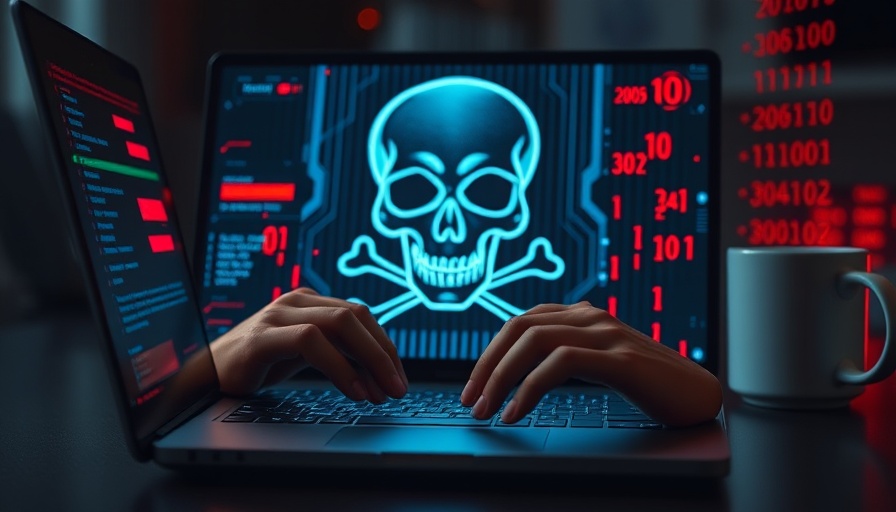
Healthcare's Digital Dilemma: Tackling Cybersecurity Challenges
In a rapidly evolving digital landscape, healthcare organizations are increasingly becoming prime targets for cyber criminals. According to a recent report by Netwrix, a staggering 84 percent of healthcare organizations detected a cyberattack within the past year. This alarming statistic underscores the critical need for enhanced cybersecurity measures within the healthcare sector.
Understanding the Threat Landscape
The nature of cyber threats is continually shifting, and healthcare facilities are not immune to this reality. Phishing attacks emerged as the predominant on-premises threat, while account compromise led as the chief concern for cloud-based vulnerabilities, affecting 74 percent of organizations. These methods exploit human behavior and the complexities of digital operations, often leaving organizations scrambling to mitigate damage.
Real-world Consequences of Cyberattacks
The fallout from cyber incidents is not just financial. A significant 69 percent of healthcare organizations reported financial damage as a direct consequence of these attacks, eclipsing the 60 percent reported across other industries. Findings revealed that 28 percent of facilities faced losses of up to $10,000, but the ramifications can reach far further.
Leadership Shakeups and Legal Troubles
Crisis response can lead to shifts in leadership, with 21 percent of affected organizations experiencing changes in their management teams post-attack. Furthermore, 19 percent faced lawsuits, reflecting a broad spectrum of repercussions that can severely impede operational stability. Take for instance PIH Health, which is currently embroiled in a lawsuit following a ransomware attack that compromised patient confidentiality—illustrating that the damage extends beyond immediate financial losses.
Patient Care Disruption: A Disturbing Trend
The most concerning aspect of healthcare cyberattacks is their potential to disrupt patient care. Reports indicate that systems have gone offline, diverting crucial medical services. The UMC Health System's ransomware incident caused substantial delays, forcing hospitals like HealthAlliance and Margaretville to redirect ambulances—ultimately impacting patient outcomes at critical times when care is most needed.
Informed Prevention: Practical Cybersecurity Tips for Healthcare Providers
Healthcare organizations must cultivate a culture of cybersecurity awareness. Simple preventative measures can significantly minimize risks. For instance, Cloudflare suggests vigilance when assessing email legitimacy—looking for signs of phishing such as generic greetings and urgent deadlines. By fostering an informed workforce, healthcare facilities can better secure sensitive data against potential breaches.
Wider Implications for Society and the Healthcare Industry
The cybersecurity threats faced by healthcare organizations resonate with broader societal implications. As digitization within the industry continues to accelerate, understanding the multifaceted nature of these attacks is essential for all stakeholders, including patients, providers, and policymakers. Without robust cybersecurity frameworks, the risks threaten not only the healthcare systems but the trust placed in them by the society they serve.
Confronting the Future of Cybersecurity in Healthcare
As we look towards the future, the imperative for fortified cybersecurity strategies within healthcare will only grow. Organizations need to leverage advanced technologies and invest in employee training to respond proactively to cyber threats. Collaboration across sectors, including tech companies and healthcare providers, will play a vital role in devising comprehensive solutions to protect sensitive patient data and ensure operational integrity.
Ultimately, cybersecurity is not merely a technical issue but a vital aspect of healthcare operational sustainability and patient trust. By acknowledging and addressing these challenges, healthcare facilities can safeguard their future and, importantly, their patients' well-being.
 Add Row
Add Row  Add
Add 




 Add Row
Add Row  Add
Add 

Write A Comment